
Robert Franklin Stroud, known as the "Birdman of Alcatraz", was a convicted murderer, American federal prisoner and author who has been cited as one of the most notorious criminals in the United States. During his time at Leavenworth Penitentiary, he reared and sold birds and became a respected ornithologist. From 1942 to 1959, he was incarcerated at Alcatraz, where regulations did not allow him to keep birds. Stroud was never released from the federal prison system; he was imprisoned from 1909 to his death in 1963.

Folsom California State Prison is a California State Prison in Folsom, California, U.S., approximately 20 miles (32 km) northeast of the state capital of Sacramento. It is one of 34 adult institutions operated by the California Department of Corrections and Rehabilitation.

Sing Sing Correctional Facility, formerly Ossining Correctional Facility, is a maximum-security prison operated by the New York State Department of Corrections and Community Supervision in the village of Ossining, New York. It is about 30 miles (48 km) north of New York City on the east bank of the Hudson River. It holds about 1,700 inmates and housed the execution chamber for the State of New York until the abolition of capital punishment in New York in 1977.

San Quentin Rehabilitation Center (SQ), formerly known as San Quentin State Prison, is a California Department of Corrections and Rehabilitation state prison for men, located north of San Francisco in the unincorporated place of San Quentin in Marin County.

"Folsom Prison Blues" is a song by American singer-songwriter Johnny Cash. Written in 1953, it was first recorded and released as a single in 1955, and later included on his debut studio album Johnny Cash with His Hot and Blue Guitar! (1957), as the album's eleventh track. Borrowing liberally from Gordon Jenkins' 1953 song, "Crescent City Blues", the song combines elements from two popular folk styles, the train song and the prison song, both of which Cash continued to use for the rest of his career. It was one of Cash's signature songs. Additionally, this recording was included on the compilation album All Aboard the Blue Train (1962). In June 2014, Rolling Stone ranked it No. 51 on its list of the 100 greatest country songs of all time.

Johnny Cash at San Quentin is the 31st overall album and second live album by American singer-songwriter Johnny Cash, recorded live at San Quentin State Prison on February 24, 1969, and released on June 16 of that same year. The concert was filmed by Granada Television, produced and directed by Michael Darlow. The album was the second in Cash's conceptual series of live prison albums that also included At Folsom Prison (1968), På Österåker (1973), and A Concert Behind Prison Walls (1976).
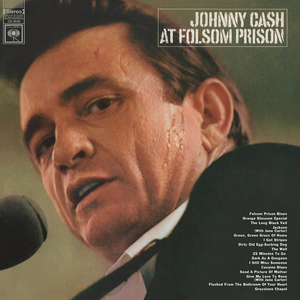
Johnny Cash at Folsom Prison is the first live album by American singer-songwriter Johnny Cash, released on Columbia Records on May 6, 1968. After his 1955 song "Folsom Prison Blues", Cash had been interested in recording a performance at a prison. His idea was put on hold until 1967, when personnel changes at Columbia Records put Bob Johnston in charge of producing Cash's material. Cash had recently controlled his drug abuse problems, and was looking to turn his career around after several years of limited commercial success. Backed by June Carter, Carl Perkins, and the Tennessee Three, Cash performed two shows at Folsom State Prison in California on January 13, 1968. The initial release of the album consists of fifteen songs from the first show and two from the second.
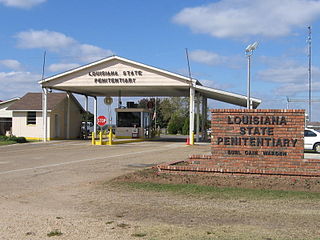
The Louisiana State Penitentiary is a maximum-security prison farm in Louisiana operated by the Louisiana Department of Public Safety & Corrections. It is named "Angola" after the former slave plantation that occupied this territory. The plantation was named after the country of Angola, from which many slaves originated before arriving in Louisiana.

Brute Force is a 1947 American crime film noir directed by Jules Dassin, from a screenplay by Richard Brooks with cinematography by William H. Daniels. It stars Burt Lancaster, Hume Cronyn, Charles Bickford and Yvonne De Carlo.
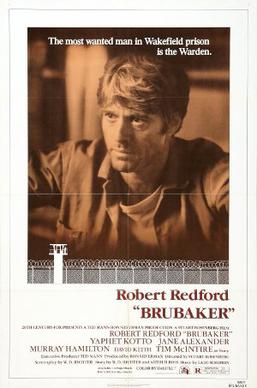
Brubaker is a 1980 American prison drama film directed by Stuart Rosenberg. It stars Robert Redford as a newly arrived prison warden, Henry Brubaker, who attempts to clean up a corrupt and violent penal system. The screenplay by W. D. Richter is a fictionalized version of the 1969 book, Accomplices to the Crime: The Arkansas Prison Scandal by Tom Murton and Joe Hyams, detailing Murton's uncovering of the 1967 prison scandal.
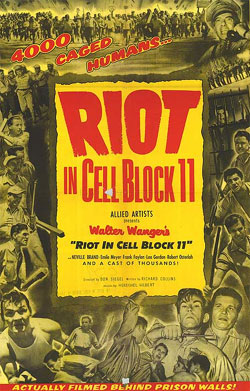
Riot in Cell Block 11 is a 1954 American film noir crime film directed by Don Siegel and starring Neville Brand, Emile Meyer, Frank Faylen, Leo Gordon and Robert Osterloh. Director Quentin Tarantino called it "the best prison film ever made."
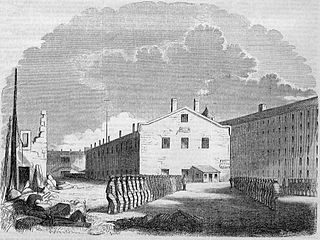
The Auburn system is a penal method of the 19th century in which persons worked during the day in groups and were kept in solitary confinement at night, with enforced silence at all times. The silent system evolved during the 1820s at Auburn Prison in Auburn, New York, as an alternative to and modification of the Pennsylvania system of solitary confinement, which it gradually replaced in the United States. Whigs favored this system because it promised to rehabilitate criminals by teaching them personal discipline and respect for work, property, and other people.
The Oklahoma State Reformatory is a medium-security facility with some maximum and minimum-security housing for adult male inmates. Located off of State Highway 9 in Granite, Oklahoma, the 10-acre (4.0 ha) facility has a maximum capacity of 1042 inmates. The medium-security area accommodates 799 prisoners, minimum-security area houses roughly 200, and the maximum-security area with about 43 inmates. The prison currently houses approximately 975 prisoners. The prison was established by an act of the legislature in 1909 and constructed through prison labor, housing its first inmate in 1910. The facility is well known for the significant roles women played in its foundation and governance, most notably having the first female warden administer an all-male prison in the nation.

James Aloysius Johnston was an American politician and prison warden who served as the first and longest-serving warden of Alcatraz Federal Penitentiary, serving from 1934 to 1948. He had earlier served as wardens of California state prisons at Folsom (1912-1913) and San Quentin (1914-1924).
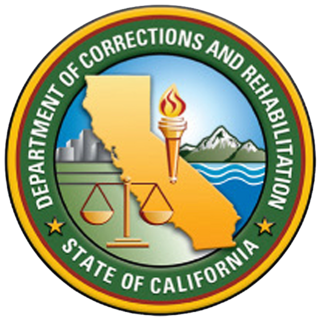
California State Prison, Sacramento (SAC) is a male-only state prison located in the city of Folsom, in Sacramento County, California. The facility is also referenced as Sacramento State Prison, CSP-Sacramento, CSP-SAC, and occasionally, New Folsom or New Folsom Prison which was its official name prior to October 1992.
CPDRC Dancing Inmates or the CPDRC dancers is a collective of prison inmates in Cebu Provincial Detention and Rehabilitation Center (CPDRC), a maximum security prison in Cebu, in Cebu Province, Philippines where the prisoners perform dance routines as part of their daily exercise and rehabilitation, and many of their performances are filmed and released online, making them a popular feature among fans and veritable online celebrities.

The Montana State Prison is a men's correctional facility of the Montana Department of Corrections in unincorporated Powell County, Montana, about 3.5 miles (5.6 km) west of Deer Lodge. The current facility was constructed between 1974 and 1979 in response to the continued degeneration of the original facility located in downtown Deer Lodge.
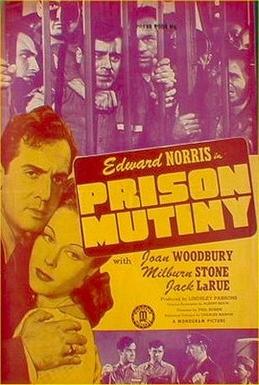
You Can't Beat the Law is a 1943 American drama film directed by Phil Rosen; also known as Prison Mutiny.
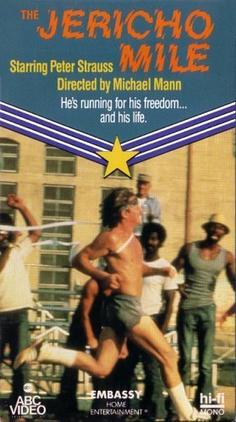
The Jericho Mile is a 1979 Emmy Award-winning United States made for TV crime sports film, directed by Michael Mann. The film won five awards, including three Emmy Awards. The story is set at Folsom Prison, and the film was shot on location there amongst the prison population.
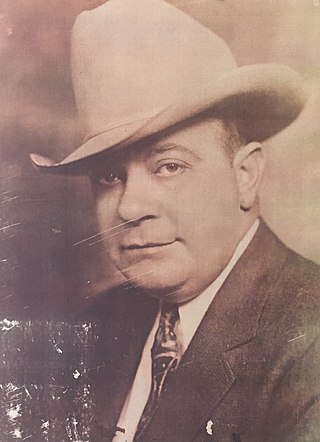
Roy Phelix Best was an American prison warden, film actor, and political candidate for Governor of Colorado. He is known for his wardenship of the Colorado Territorial Correctional Facility, an infamous prison in Cañon City, Colorado, and for playing himself in Canon City, a 1948 film noir crime film.


















